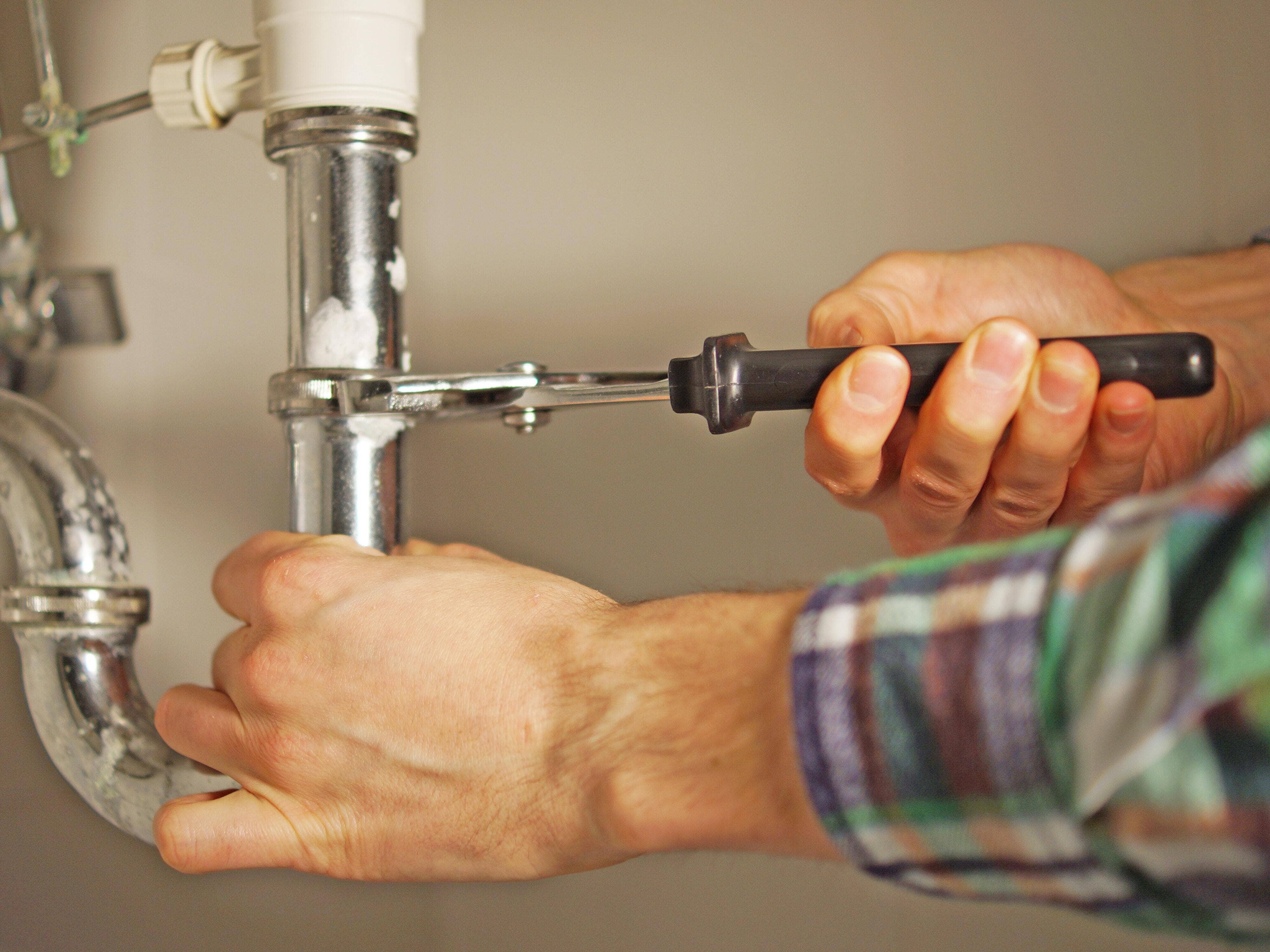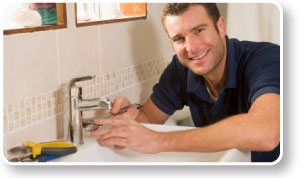Check Us Out
How do you really feel about Can Hard Water Ruin Your Appliances??

The secret to long lasting devices, unsurprisingly, appertains upkeep. There's no hard and fast guideline that can ensure your plumbing home appliances a lengthy wear, yet you can protect against unneeded damage and repair services by staying clear of negative plumbing behaviors.
You should stop doing these 6 things else you'll keep calling your plumber over for minor faults.
Purging everything
Yes, your toilet drain leads to the drains, however that doesn't imply you ought to dispose just anything down the tubes. Numerous 'flushable' materials are actually fantastic blockage starters, for instance dental floss. Asides keeping obvious non-flushable products like cords and also plastics out of your bathroom, you must likewise avoid flushing cotton buds, menstrual products, wipes, daipers and also prophylactics down the bathroom drainpipe.
Putting oil in the sink
We understand appropriately getting rid of grease after a hearty meal is a pain. However simply pouring it away can do lasting damage to your pipes. "The fat and oil can block your drain severely adequate to compel you to call a plumber," describes Dawson. "Plumbing works best when it's well looked after-- not abused with oil."
Utilizing too much drainpipe cleaner
Utilizing a drain cleaner greater than once or twice a month is a sign that something serious is taking place within your pipes. Currently, instead of facing the primary problem, you opt for a quick fix; a carbonated drain cleaner. Rightfully, a drain cleaner will deal with the obstruction, but at what expense?
The chemicals in a drainpipe cleaner can accelerate the rust of your pipes. Include that to whatever underlying trouble is causing the blockage and also you may need to a serious problem on your hands.
If you experience way too many clogs, call your emergency plumber instead of utilizing a drainpipe cleaner.
Not rinsing meals prior to filling them into the dishwashing machine
it's called a dishwasher, but throwing in dishes, pots, and frying pans covered in big food particles can in fact trigger some serious damage to the appliance, causing long-term troubles down the line. "Homeowners may need to obtain their dishwashing machine fixed more frequently if they do not rinse their recipes prior to loading, or a minimum of remove larger food items," describes Audrey Monell, proprietor of Forrest Anderson Plumbing and also Air Conditioning in Glendale, Arizona. "Food that obtains stuck on recipes causes the dish washer to function harder, which can wear down components much faster, resulting in issues."
DIYing every little thing
With plumbing, a stitch in time actually does conserve 9. You can stop a fullblown plumbing emergency by calling your plumber at the correct time.
You might have learnt a few plumbing hacks from your daddy, yet you should know where to draw the line as well as call a specialist. As an example, you might have the ability to repair a blockage on your own, yet you should not attempt to transform a pipeline. You might inequality pipes or overtighten a bolt, causing even more injury and also damages than you thought. Calling a plumber is a risk-free as well as economical decision.
Not transforming your dishwasher hose pipes
One easy method to make sure that you utilize your dishwashing machine for years is to replace the hose at least as soon as in 5 years. This likewise looks for cleaning device hose pipes.
With time, food bits, soap and oil can develop obstructions within your pipes. Changing them in a timely manner will stop any presure develop that can harm the inner functions of your dishwasher or washing maker.
A strengthened steel intertwined hose pipe does a great job of extending your machine's use time.
No winter safety measures
Extreme climate condition misbehave for your pipelines, especially if they're made of steel. You must protect your exposed pipelines, and your water tank, even if you have a water heater. You ought to likewise switch off your garden pipe shutoff and any other outside water channels. These channels are outlets for cool; you pipelines can start to ice up from outdoors if you don't.
WAYS TO AVOID DAMAGE TO YOUR PLUMBING SYSTEM
DON’T DUMP GREASE DOWN THE DRAIN
Grease is your plumbing’s worst enemy. After cooking bacon, it’s wise to find a better way to dispose of the grease. Grease is solid at room temperature and should never find its way to your pipes. Once the grease gets to the P-trap under your sink, it solidifies and becomes a sticky trap for debris and gunk. The blockage will eventually clog or slow your drain.
If the grease finds its way to the sewer, it will meet with all sorts of wastes and cause a blockage. If you pour grease down the drain accidentally, remove it with natural cleaners like baking soda and vinegar.
FLUSH YOUR GARBAGE DISPOSAL
A garbage can in the kitchen is unsightly, and that’s why people invest in garbage disposals. Your garbage disposal helps to reduce odors in the kitchen sink; it mutilates the food particles and enables them to drain easily. The disadvantage of having a garbage disposal is that it can harbor waste and odors.
Avoid putting items that cannot be broken down easily into the garbage disposal. Running cold water often helps to flush food particles from the trap to the waste pipes without damaging the moving parts.
If the moving parts start grinding, turn off the faucet and add one tablespoon of baking soda and one cup of vinegar. Turn on the garbage disposal for several minutes until the grinding stops. Then, flush it with hot water.
DON’T FLUSH UNWANTED MATERIALS IN THE TOILET
Be careful when flushing things down the toilet. Even food scraps don’t break down as easily, meaning that they can clog your sewer line. The last thing you want is to have a clogged toilet in your home.
If you drop something into the toilet, don’t assume that a flush will unclog it. Instead, try to remove it with a plunger. If the plunger does not work, use the plumber’s snake to remove it. Fill the toilet with water, and use the plumber’s snake to dislodge it. You might have to call a plumber if these methods don’t work.
FIX YOUR FAUCETS
Almost every homeowner has experienced a problem with dripping faucets. Besides being annoying, they can drip away gallons of water over time and cost you money. The internal washer becomes worn out and dislodged, especially if you live in a hard-water region.
Turn off the water supply and disassemble the faucet with a wrench. Tape the edges of your wrench with tape to avoid scratching your faucet. Remove the mineral deposits with vinegar and a scouring pad. If the ring and washers have become rusty and disfigured, be sure to replace them.
DEAL WITH LOW WATER PRESSURE
If water trickles from your faucets instead of gushing, you might have a deeper problem to deal with. Find out whether the problem has affected one appliance or the entire house. If your neighbors are not having the same problem, then you need to check the main water supply valve to ensure that it’s fully open.
In some cases, low water pressure means that most of your appliances and pipes are clogged. You need to disassemble the affected appliances and use vinegar to dissolve the mineral buildup.
WINTERIZE YOUR PIPES
When water freezes in the pipes, it expands significantly as it turns to ice. This expansion generates enormous pressure that causes damage to the pipes. Experts recommend winterizing your plumbing if your house will be vacant for a while. You don’t want to deal with all sorts of problems when you return home from holiday.
During the winter, it’s wise to prepare your plumbing for the freezing temperatures by insulating the pipes in the unheated areas. These include the crawlspaces, attic, and garage. Let the faucet drip as running a trickle through the pipes will prevent them from freezing.
Pipes freeze and burst at 32 degrees Fahrenheit, the freezing point for water. According to Energy Star, you should set your thermostat at 70 degrees Fahrenheit during the winter for optimum energy efficiency.
https://hufthomeservices.com/8-ways-to-avoid-damage-to-your-plumbing-system/

Do you enjoy reading up on Leak Detection and Repair Without Destroying Your Home? Create a review below. We'd be interested to hear your ideas about this posting. We hope that you come back again in the near future. Loved our blog entry? Please share it. Help someone else locate it. Thank you for your time. Don't hesitate to come visit our site back soon.
Additional Information